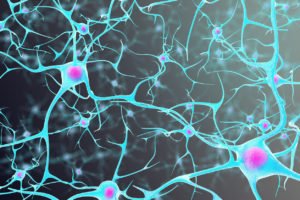New Zealand researchers have led a study that suggests a build-up of urea in the brain could be linked to the development of Huntington’s disease.
 The research, published today in the Proceedings of the National Academy of Sciences, used transgenic sheep to study the disease. The sheep are symptom-free but carry the mutant form of the human Huntingtin gene and the international research team found the same increase in urea in the brain as found in post-mortem brains of people who had died from Huntington’s.
The research, published today in the Proceedings of the National Academy of Sciences, used transgenic sheep to study the disease. The sheep are symptom-free but carry the mutant form of the human Huntingtin gene and the international research team found the same increase in urea in the brain as found in post-mortem brains of people who had died from Huntington’s.
The researchers say the study suggests that reducing urea or ammonia in the brain could be a potential therapy for Huntington’s.
The UK SMC gathered expert reaction to the study.
Dr Doug Brown, Director of Research and Development, Alzheimer’s Society, said:
“Urea is natural chemical produced by the body that is normally cleared away in our urine, but this study suggests a build-up of urea in the brain could be involved in the development of Huntington’s disease. This could be because the use of energy is compromised in the brains of people with Huntington’s and urea is produced as the damaged brain tries to find alternative energy sources.
“Previous research has hinted that urea might also accumulate in the Alzheimer’s brain, which also experiences problems using energy. However, more research is required to understand if a build-up of urea is the cause, or the result, of brain cells dying so this study doesn’t substantiate the researcher’s claim that urea is a “pivotal” cause of dementia.
“Given that there are still so many unknowns about the causes of dementia, research like this that looks outside the box is vital to help us get a full picture of what causes the condition, and ultimately develop new treatments.”
Dr Sara Imarisio, Head of Research, Alzheimer’s Research UK, said:
“This study found increased levels of urea in the brains of sheep with features of early Huntington’s disease and in brain tissue from people who died with the disease. The research suggests that elevated levels of urea in the brain may be an early feature of Huntington’s disease, but it did not explore what might lead to elevated urea or whether urea contributes to damage to nerve cells in the disease. The researchers suggest that lowering levels of urea could represent a potential avenue for future treatments for Huntington’s disease and this will need to be investigated further.
“Previous studies have linked increased levels of urea and the progression of Alzheimer’s disease, but this study did not investigate this association and specifically focused on Huntington’s disease.
“While findings from research involving animals can’t always be applied to people, this well conducted study followed up findings from sheep with examination of human brain tissue.
“To have the best chance of tackling diseases like Huntington’s and Alzheimer’s, researchers need to approach these diseases from many different angles. This is only possible if we continue to invest in dementia research.”
Prof Tara Spires-Jones, UK Dementia Research Institute Programme Lead and Deputy Director, Centre for Discovery Brain Sciences, University of Edinburgh, said:
“In this study, scientists observed that urea, a breakdown product of protein metabolism, builds up in the brains of people with early stage Huntington’s disease and in a sheep model of the disease. While this is an interesting observation that sheds some light on the early changes in the brain during Huntington’s disease, this research does not establish changes in urea as a major cause of the disease since the experiments do not address whether this increase in urea actually causes the disease or is the result of another disease process. We also must be cautious in interpreting these results as a ‘major cause of dementia’ since Huntington’s disease is a very rare disease (around 3 in 100,000 people affected). This study did not examine the more common causes of dementia such as Alzheimer’s disease.”